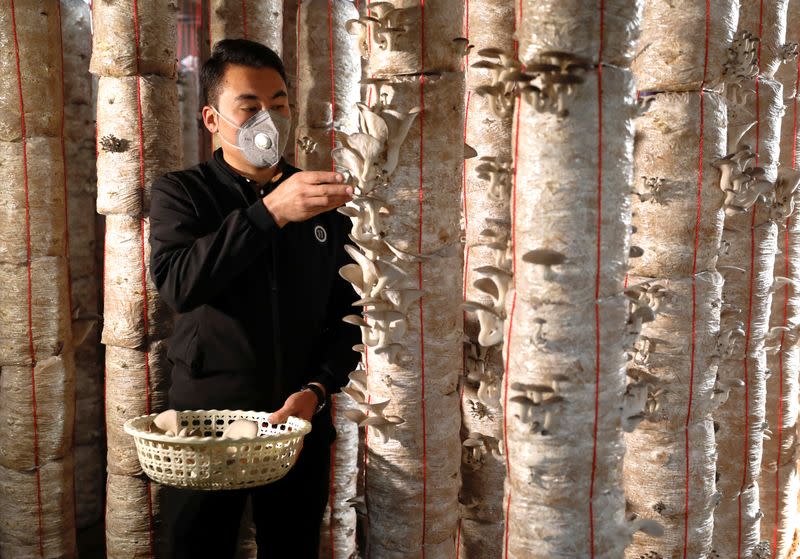By Hameed Farzad, Sayed Hassib and Aziz Mohammad
KABUL (Reuters) – On his farm in Kabul, the capital of Afghanistan, Rasool Rezaie gently picks oyster mushrooms, part of the approximately 30 kg he sells daily in markets.
Rezaie learned how to grow mushrooms during a stay in Russia, and set up his farm two years ago.
“I was introduced by a friend to a mushroom farm in Russia, and I started working there, where I learned how to produce the mushroom spores and grow them,” Rezaie said. Afghanistan.
In 2016, more than one million people, a quarter of whom were Afghans, applied for asylum in Europe, Rezaie among them.
His claim was rejected and he returned to Afghanistan, where he initially worked as a shopkeeper. But the memory of mushroom farming lingered.
“I said to myself, ‘If I had any experience with this profession, why would I not do it?'” He told Reuters.
He started growing mushrooms in a single room in his own house and produced 4-5 kg for markets. Rezaie said today he earns about 4,500 Afghans ($ 58) a day and is optimistic about his future.
He even started providing clues to others who want to set up their own mushroom farms, a rare example of domestic farming in Afghanistan where the seeds are usually imported.
Rezaie said the mushroom cultivation was taken up during the coronavirus pandemic while people were looking for a new source of income as businesses closed.
Zakir Hussain Mohammadi, a seller who sells about 10 kg of mushrooms daily at a local Kabul market, said consumer interest was also increasing.
Rezaie hopes that other farmers will also grow mushrooms and change the image of Afghanistan as a global producer of opium.
(Correct heading and paragraphs 4-5 to reflect that Rezaie was deported from Europe, not Russia)
(Reporting by Hameed Farzad, Sayed Hassib and Aziz Mohammad; Writing by Umar Farooq; Editing by Janet Lawrence)
